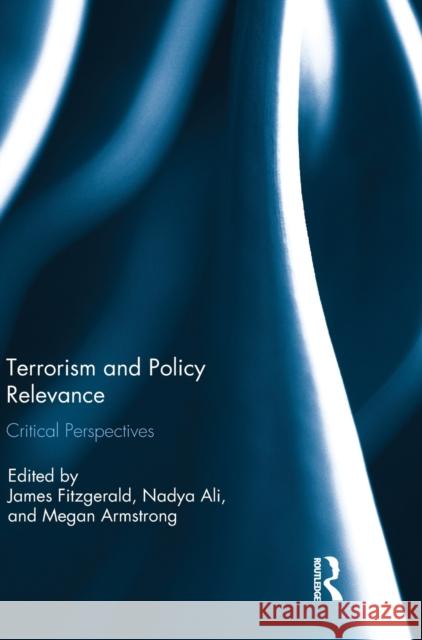Terrorism and Policy Relevance: Critical Perspectives » książka
Terrorism and Policy Relevance: Critical Perspectives
ISBN-13: 9781138894860 / Angielski / Twarda / 2017 / 174 str.
Terrorism and Policy Relevance: Critical Perspectives
ISBN-13: 9781138894860 / Angielski / Twarda / 2017 / 174 str.
(netto: 743,28 VAT: 5%)
Najniższa cena z 30 dni: 705,23
ok. 16-18 dni roboczych.
Darmowa dostawa!
This book explores the interrelationship between terrorism and policy relevance from a range of critical perspectives. In particular, it questions the politics of policy-relevance; that is, it interrogates how epistemological and practical pressures to produce -policy-relevant- research shapes prevalent understandings of (counter)terrorism, and vice-versa. It also reflects on Critical Terrorism Studies' (CTS) relationship to policy-relevance. Should CTS eschew engagement with policy-relevance and maintain a position outside the orthodoxy, or are CTS scholars uniquely positioned to offer meaningful alternatives to contemporary counterterrorism practices? Read thus, the question of policy relevance is central to CTS' identity and represents an essential juncture as to how associated scholarship might develop into the future. Through the prism of policy-relevance, this edited volume examines a myriad of issues, including: the popular silencing of terrorist victims' voices; the closure of space for social workers to tackle 'radicalisation'; the institutional pressures on policy-practitioners tasked with preventing 'radicalisation'; and, how policy-relevance informs contemporary practices of mass surveillance. By reflecting on one of the most essential components of (counter)terrorism, this volume forms a critical interjection that will continue to shape the agenda not only on policy-relevance, but on the discipline of Critical Terrorism Studies itself. This book was originally published as a special issue of Critical Studies on Terrorism.











